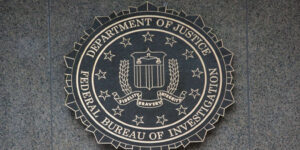Is It Discernment or Spiritual Pride?
“If you’re regularly willing to give a critique, but not willing to take one, you’re not a leader, you’re a cynic.” —Ed Stetzer, via Twitter
“Whoever humbles himself like this child is the greatest in the kingdom of heaven” (Matt. 18:4, ESV).
Cynicism is the ugly side of discernment. According to Merriam-Webster, a cynic is someone who is “contemptuously distrustful of human nature and motives.” Compare that to something we all desire: discernment. This good trait is “the ability to see and understand people, things, or situations clearly and intelligently.”
Do you see the fine line between the two definitions? Our greatest strengths tend to be our greatest weaknesses. Discernment and cynicism are two sides of the same coin, and any of us who consider ourselves discerning need to be on guard against the other.
How do we foster the good character trait of discernment while protecting ourselves from its ugly counterpart, cynicism? I think the key is found in the quote above from Ed Stetzer. The discerning person must be willing to seriously consider criticism of themselves. Back in the day at my Christian college, they called this being teachable.
There is a simple, age-old problem that faces a discerning person when they are faced with critique or correction. It is pride. A discerning person likely struggles with personal pride more than anyone else. That’s a strong statement, but remember that the central thing about being a discerning person is that you accurately evaluate situations and people.
You’re good at seeing through others’ true motives or the unintended consequences of poorly-thought-out choices. Discerning people are good at evaluating others, but that can trick them into thinking they are best at evaluating themselves. When someone comes to them with concerns or encouragement, the discerning person assigns the worst motives to the other person instead of the best, picks apart the person bringing the critique, and then moves from the good side of discernment to the bad side of cynicism. They trust in their discernment more than they trust the one speaking to them. That is the heart of pride.
Humility is a hard trait to foster in ourselves if we feel we are a discerning person. But the ability to receive criticism of ourselves may be the most important character trait of all, especially for a person gifted in discernment. The discerning person has a choice to make in a moment of criticism. Does our discernment define us? If we find our identity in that noble character trait, we actually set ourselves up for failure. But if Christ defines us rather than our ability to discern, then Christ will still define us when we are critiqued. Our identity can stand up to the fact that our discernment of ourselves failed and that we needed someone else to speak into our lives.
As it does at many points of life, a robust understanding of the gospel and our subsequent identity in Christ is the thing that equips us to live as humble, discerning people rather than proud cynics.
Adapted from Wendy Alsup‘s blog, theologyforwomen.org. Wendy has authored three books, including By His Wounds You are Healed: How the Message of Ephesians Transforms a Woman’s Identity. She is also a wife, mom and college math teacher who loves ministering to women.







































